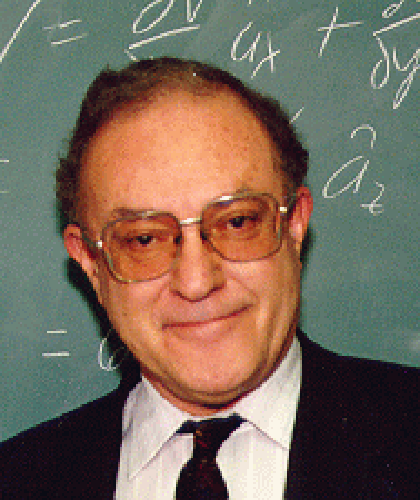
Granatstein, Victor
Maryland Energy Innovation Institute
Institute for Research in Electronics & Applied Physics
EDUCATION
- Ph.D., Electrical Engineering and Plasma Physics, Columbia University, 1963
BACKGROUND
Victor L. Granatstein grew up in Toronto, Canada. He received the Ph. D. degree in electrical engineering from Columbia University, New York in 1963. He was a research scientist at Bell Telephone Laboratories from 1964 to 1972. In 1969-70, he was a Visiting Senior Lecturer at the Hebrew University of Jerusalem. In 1972, he joined the Naval Research Laboratory (NRL) as a Research Physicist, and from 1978 to 1983, he served as Head of NRL's High Power Electromagnetic Radiation Branch. From August 1983 to the present, he has been a Professor in the Electrical and Computer Engineering Department of the University of Maryland, College Park. From 1987 to 1998, he was Director of the Institute for Plasma Research (now renamed Institute for Research in Electronics and Applied Physics) at the University of Maryland. He spent semesters in both 1994 and 2003 as a Visiting Professor at Tel Aviv University. In 2004, he was made Sackler Professor by Special Appointment at Tel Aviv University. His present research interests include electromagnetic radiation from relativistic electron beams, advanced concepts in millimeter wave tubes, the effects of high power microwaves on electronic circuits and systems and microwave hyperthermia of tumors He has co-authored more than 250 research papers in scientific journals and has co-edited three books. He holds a number of patents on active and passive microwave devices. His textbook "Physical Principles of Wireless Communications" was published in 2007. Dr. Granatstein is a Fellow of the American Physical Society and a Life Fellow of the IEEE. He has received a number of major research awards including the E.O. Hulbert Annual Science Award (1979), the Superior Civilian Service Award (1980), the Captain Robert Dexter Conrad Award for scientific achievement (awarded by the Secretary of the Navy, 1981), the IEEE Plasma Science and Applications Award (1991) and the Robert L. Woods Award for Excellence in Electronics Technology (1998).
HONORS AND AWARDS
- Robert L. Woods Award for Leadership in the Vacuum Electronics Community (1998)
- Fellow of the Institute of Electrical and Electronics Engineers (1992)
- IEEE Plasma Science and Applications Award (1991)
- J. Calame, American Physical Society Award for Outstanding Thesis in Beam Physics and Engineering (1991)
- Fellow of the American Physical Society (1981)
- Captain Robert Dexter Conrad Award for Scientific Achievement, from the Secretary of the Navy (1981)
- Superior Civilian Service Award (1980)
- E.O. Hulbert Science Award, from the Naval Research Laboratory (1979)